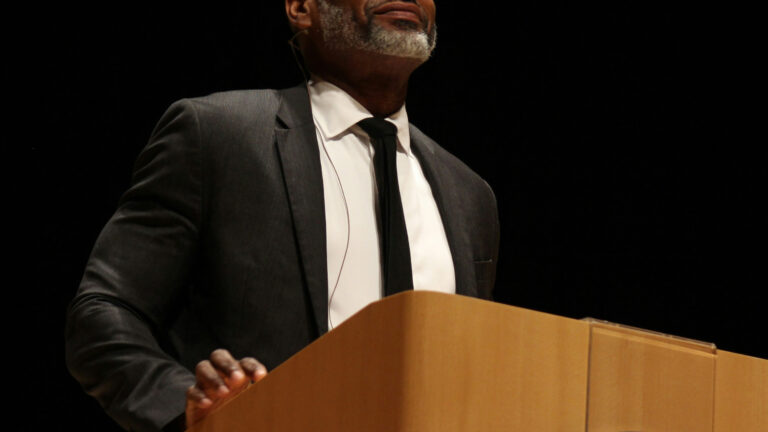Africa is very diverse in matters of religion. Thus it’s common to hear phrases like: “all religions serve the same God,” and “we all worship God in our own different ways.” Is this true? Is religious pluralism the way forward, the route away from division and conflict?
In our desire for tolerance we cannot sacrifice the truth.
David Platt, in his book Radical, tells the story of standing outside of a Buddhist temple, in Indonesia. As he stood there, he got into a conversation with two people—a Buddhist leader and a Muslim leader. Both believed that, while there were superficial differences among the major religions, all religions basically taught the same thing. Then they asked Platt what he thought. He replied, “It sounds as though you both picture God…at the top of a mountain. It seems as if you believe that we are all at the bottom of the mountain, and I may take one route up the mountain, you may take another, and in the end we will all end up in the same place.” To this the Buddhist and the Muslim exclaimed, together: “Exactly! You understand!”
This sentiment is common, across the world. However, it most certainly isn’t true. Christians don’t serve the same God as those in other religions or faith traditions. This is not to suggest we should be intolerant, yet in our desire for tolerance we cannot sacrifice the truth. We don’t all worship the same God.
Below I briefly outline three reasons explaining why Christians should reject pluralism.
1. The One, True God is Trinitarian
Christians are unique in believing that there is only one God, but that this God existed eternally as three persons: the Father, the Son, and the Holy Spirit. Islam may believe that there is only one God as well, but definitely not in a triune God. Most African traditional religions believe in a wide-ranging pantheon of gods, similar to the ancient Greeks. It’s hard to fit these differences within pluralism.
There is only one God, but that this God existed eternally as three persons.
If we insist that everyone worships the same God, we need to clarify who is mistaken about the true nature of God. Is God both three and one? Or is he singular? Christians and Muslims can’t both be correct on this. Or consider the arrival of the gospel message in Africa. Did those who came preaching about Christ and him crucified waste their time? Surely they did if Africans already worshipped the one true God.
2. Jesus is Fully God
When I was in university, two other students in my class shared my name: Wole. Therefore, whenever someone started to talk about Wole the first thing they were asked was this: “which Wole?”
When Jesus preached to the Jews, they accused him of blasphemy.
That is the same thing we need to ask people when they claim that we’re serving the same God: “which God are you talking about?” Jesus described himself as God, saying: “I and the Father are one” (John 10:30). Yet the Quran says: “In blasphemy indeed are those that say that Allah is Christ the son of Mary” (Surah 5:17). When Jesus preached to the Jews, they accused him of blasphemy, because he made himself equal to God (John 19:7).
How then can Christians, Muslims, and Jews be talking about the same person, when they speak about Jesus Christ? Turning to Africa, apart from biblical Christianity, are there any faith systems or folk religions that affirm his absolute divinity? Pluralism cannot accommodate both Christ and Allah, or the ancestors, or Richard Dawkins.
3. Jesus Preached Exclusivity
Finally, Jesus taught: “I am the way and the truth and the life. No one comes to the Father except through me” (John 14:6). The word “except” in that verse is crucial. For it shows that Jesus preached that there’s only one way to God. That way is faith in Jesus. It is impossible to agree with the teaching of Jesus and pluralism. They are mutually exclusive, because Jesus preached exclusivity.
Those who preach pluralism cannot preach Christ.
Whenever we agree with people of other religions that we all worship the same God, we’re suggesting that Jesus was wrong. He said, clear as day, that there is only one way to God the Father. Himself. If Jesus was wrong here, then who’s to say he was right on any other point? Those who preach pluralism cannot preach Christ.
God Didn’t Remain at the Top of the Mountain
Let’s conclude by returning to the conversation David Platt relays in Radical, which I started this article with. After the Buddhist and Muslim leaders mistook Platt’s summary of their position for affirmation of it, he said: “Let me ask you a question. What would you think if I told you that the God at the top of the mountain actually came down to where we are? What would you think if I told you that God doesn’t wait for people to find their way to him, but instead he comes to us?” They thought for a moment and exclaimed, “That would be great!” So David Platt introduced them to Jesus.














